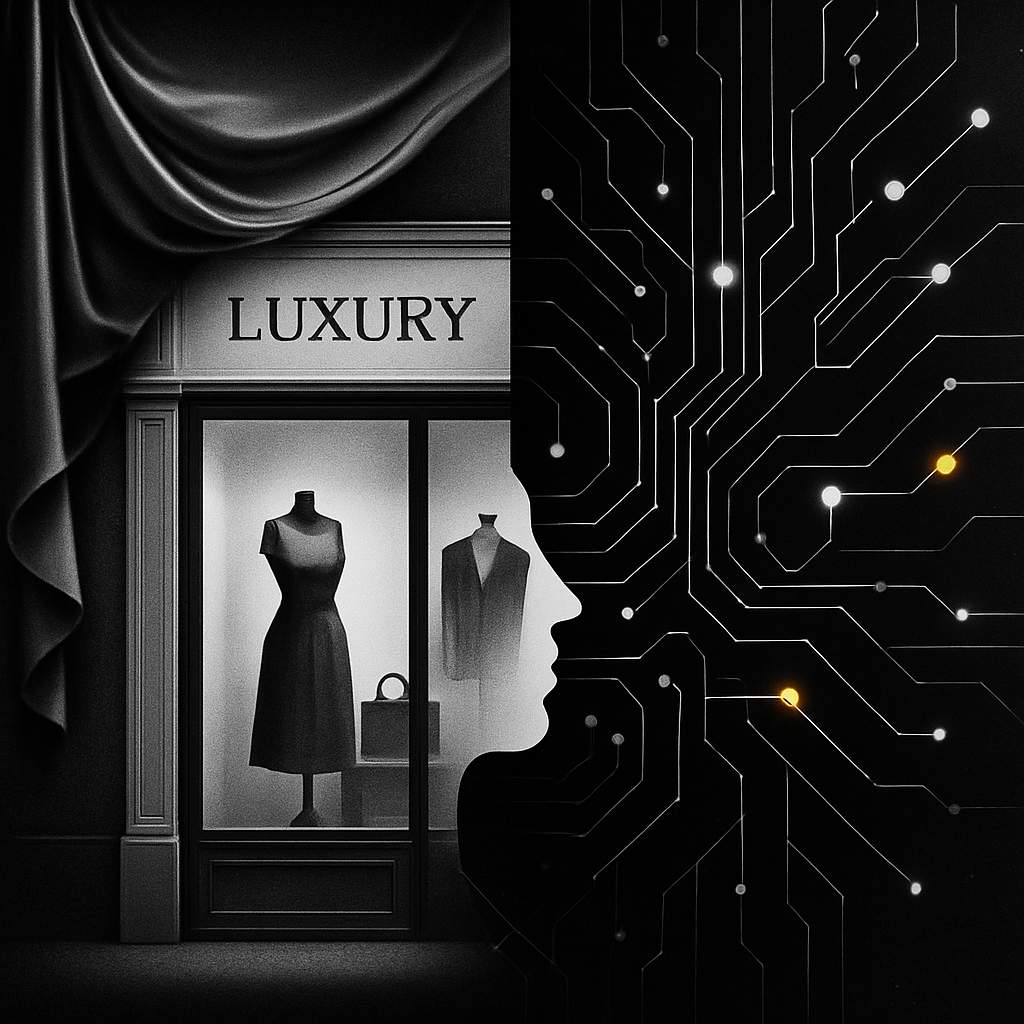Jun23

Luxury’s Digital Pivot: What LVMH’s AI Strategy Reveals About the Future of High-End CRM
The luxury sector is changing its footing. After years of pandemic-fuelled expansion, signs of a global slowdown are emerging—from cautious Chinese consumers to margin-squeezing inflation. LVMH, the world’s most valuable luxury group, is choosing not to wait for a rebound. Instead, it’s leaning decisively into artificial intelligence.
But this isn’t just about efficiencies. It’s about reimagining what “luxury” means in a world shaped by algorithms, data flows, and rising consumer expectations.
Here are the five key takeaways from LVMH’s strategy—and what they signal for those of us in CRM, personalisation, and loyalty:
1. AI Needs a Data Foundation, Not Just Ambition
While many brands are piloting AI, LVMH has spent the last four years laying the pipes. In partnership with Google Cloud, it’s built a single data platform that connects all 75 of its maisons. This creates a unified source of truth across marketing, supply chain, finance, and customer engagement.
Why does this matter? Because the future of personalisation isn’t just smarter emails—it’s orchestration across every touchpoint. Fragmented data = fragmented experience. LVMH’s foresight proves that CRM without strong data foundations is just glorified email marketing in a silk wrapper.
2. Operations and Creativity Can Coexist—Thanks to AI
Franck Le Moal, LVMH’s Group IT director, sums it up perfectly: “Tech is mandatory to become super-efficient and at the same time keep the spirit and essence of luxury.”
This is the paradox that AI helps resolve. On the one hand, predictive models now inform supply planning, helping brands avoid overproduction (a cardinal sin in luxury). On the other, dynamic pricing engines adjust for fluctuations in foreign exchange or duties—without losing brand equity.
It’s not just about being fast. It’s about being precisely, intentionally fast—while still making it feel slow, rare, and considered to the customer.
3. Personalisation Is About Empowering People, Not Replacing Them
Nowhere is the human-tech balance more visible than at Tiffany & Co., where store advisors use AI assistants to tailor messages, product suggestions, and outreach based on individual customer profiles.
This is human + machine, not human vs. machine.
It signals a critical shift in CRM thinking: from "automate the message" to "augment the messenger." It’s not about removing the store associate—it’s about making them superhuman. And in doing so, preserving the magic of relationship-led commerce.
4. Generative AI Will Redefine Creativity in Marketing and Merchandising
Beyond operations, LVMH is experimenting with generative AI in content and design. Marketing teams are using AI-generated copy tailored to different customer segments, while creative teams use generative mood boards to inspire seasonal campaigns.
Even eCommerce—long a weak spot for many luxury brands—is getting an upgrade. LVMH has implemented Google’s “Search for Commerce,” improving on-site experience and conversions.
What’s important here is that AI isn’t treated as a gimmick. It’s embedded across workflows, not just bolted on for headlines.
For CRM teams, this is the wake-up call: AI isn’t just about better segmentation—it’s about enhancing the full lifecycle, from ideation to execution.
5. AI Must Be Intuitive, Internal, and Trusted
Perhaps the most underappreciated innovation is MaIA—LVMH’s internal AI assistant, powered by Google’s Gemini, Imagen, and GPT models. It currently handles over 2 million requests a month across 40,000 employees.
That’s AI at scale, but it’s also AI with purpose. MaIA is used for ideation, data requests, pricing models, creative prompts—you name it.
This shows that AI isn’t just for the customer-facing side of the business. It’s a cultural shift. A new kind of internal operating system.
For CRM leaders, it raises a strategic question: are we building AI tools, or are we building AI confidence?
Final Thought: The New Luxury Isn’t Just Scarcity. It’s Relevance.
Luxury used to be defined by what you couldn’t have. Today, it’s increasingly defined by how well a brand knows you—without feeling intrusive.
That’s the art of modern CRM in high-end retail: data + discretion, automation + empathy, efficiency + enchantment.
LVMH’s AI play isn’t about shortcuts. It’s about sustainability—of experience, of margin, of relevance.
As the market tightens, this strategy gives us a glimpse of the future: where AI is not a threat to creativity or customer intimacy, but the scaffolding that makes both possible at scale.
Read the full WSJ article here (subscription may be required):
https://www.wsj.com/articles/lvmh-bets-on-ai-to-navigate-luxury-goods-slowdown-0438e328
Keywords: AI, CRM, Retail
 The Orchestra Needs a Conductor: Why Multi-Model Agents Require H2E Governance
The Orchestra Needs a Conductor: Why Multi-Model Agents Require H2E Governance The Role of Memory in Modern-day Business
The Role of Memory in Modern-day Business The Architectures of Permanence: A Comparative Analysis of the "Big Three" AI Strategies (2026)
The Architectures of Permanence: A Comparative Analysis of the "Big Three" AI Strategies (2026) Friday’s Change Reflection Quote - Leadership of Change - Change Leaders Enable Generational Advancement
Friday’s Change Reflection Quote - Leadership of Change - Change Leaders Enable Generational Advancement The Corix Partners Friday Reading List - February 27, 2026
The Corix Partners Friday Reading List - February 27, 2026